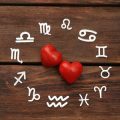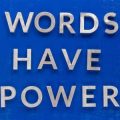Introduction: Astrology and British Cultural Imagination
The twentieth century in Britain was marked by profound social, political, and intellectual transformations, each wave subtly rippling through the nations collective imagination. Among the myriad threads woven into this intricate tapestry was astrology—a practice both ancient and persistently alluring. While often relegated to the fringes of scientific discourse, astrology nonetheless maintained a curious presence within British society and literature. The British publics fascination with the stars was not merely a matter of light-hearted entertainment or mystical escapism; rather, it signalled deeper cultural currents reflecting anxieties, hopes, and existential quests that shaped the era. From the drawing rooms of Edwardian England to the countercultural enclaves of post-war London, astrology oscillated between reverence and ridicule, offering both comfort and critique. This introduction sets out to explore how astrology, as a symbolic language and a form of knowledge, intersected with the literary imagination of twentieth-century Britain. By tracing its historical presence and shifting perceptions—from scepticism to subtle embrace—this analysis seeks to illuminate the nuanced roles astrology played within the texts and contexts of modern British literature.
2. Modernism and Skepticism: Questioning the Stars
The early twentieth century marked a period of profound transformation in British literature, with modernist writers embracing skepticism and intellectual inquiry as hallmarks of their craft. Against the backdrop of rapid scientific advancements and shifting social landscapes, astrology—once woven seamlessly into the fabric of everyday belief—came under renewed scrutiny. Modernists such as Virginia Woolf, T.S. Eliot, and Aldous Huxley often engaged with astrological motifs, yet their approach was rarely one of uncritical acceptance.
Instead, these writers juxtaposed the allure of mystical symbolism against the burgeoning authority of scientific rationalism. For many, astrology became a metaphorical canvas upon which questions about fate, autonomy, and human understanding were painted. The following table illustrates how key modernist figures incorporated astrological references while interrogating their validity:
| Author | Work | Astrological Engagement | Skeptical Perspective |
|---|---|---|---|
| Virginia Woolf | Orlando | Uses planetary cycles to frame character transformation and temporality. | Challenges fixed destiny by highlighting fluidity of identity. |
| T.S. Eliot | The Waste Land | Alludes to zodiacal imagery amid apocalyptic despair. | Implies uncertainty over cosmic order and meaning. |
| Aldous Huxley | Crome Yellow | Presents astrology through satirical dialogue between characters. | Casts doubt on mysticism via ironic tone and rational critique. |
This era’s literary engagement with astrology was therefore not merely decorative; it was deeply reflective, exploring the tension between inherited beliefs and the relentless quest for empirical truth. British writers’ nuanced portrayals reveal both a longing for cosmic connection and an enduring suspicion towards systems that claim to predict or govern human fate. Through such critical perspectives, modernist literature invites readers to ponder whether we are truly ruled by the stars—or if perhaps, in questioning them, we discover our own agency anew.
![]()
3. Astrology as Social Critique
Throughout the twentieth century, British literature saw astrology woven not only into narratives of fate and destiny, but also as a lens through which social hierarchies and class structures were examined and gently challenged. Writers utilised astrological symbolism to illuminate the rigid boundaries that defined British society, subtly questioning who held power and who was subject to the whims of fortune. For instance, in novels set amidst the drawing rooms of Edwardian England or the bustling streets of post-war London, a character’s star sign might become shorthand for their social position or aspirations, highlighting the persistent influence of class on personal identity.
The Stars as Mirrors of Class Divisions
Astrology in British literature often operates as a mirror reflecting the entrenched divisions between the upper echelons and working classes. Authors such as Virginia Woolf and D.H. Lawrence used horoscopes and celestial metaphors to expose how privilege could be both inherited and arbitrary—much like one’s birth chart. The language of astrology enabled these writers to critique systems where destiny seemed predetermined by lineage rather than personal merit, inviting readers to question whether anyone truly controlled their own fate within such stratified worlds.
Astrology and Evolving Gender Roles
Beyond class, astrological motifs also provided fertile ground for exploring shifting gender roles across generations. As women in Britain gained greater agency throughout the century, literary depictions of female characters became more nuanced, often invoking their star signs or planetary influences as sources of inner strength or rebellion. Through these celestial references, authors like Angela Carter imbued their heroines with cosmic authority, challenging patriarchal expectations and suggesting that destiny could be rewritten through self-awareness and solidarity.
Reading Between the Stars: Subtle Acts of Resistance
By embedding astrology into their works, British authors crafted subtle acts of resistance against established norms. Whether through a protagonist who consults her horoscope before defying convention or a family whose fortunes wax and wane with the lunar cycle, these narratives offered readers gentle encouragement to imagine new possibilities beyond their prescribed roles. In this way, astrology became not just a tool for divination but a quiet form of social commentary—one that continues to resonate in the collective imagination of British literature.
4. Post-War Disillusionment and Cosmic Searching
The aftermath of the Second World War cast a long, uncertain shadow over British society, as individuals grappled with loss, displacement, and the erosion of traditional belief systems. Within this climate, twentieth-century British literature witnessed a notable resurgence in astrological references—a response both gentle and urgent to the collective search for meaning amid chaos. Authors such as Graham Greene and Iris Murdoch deftly wove celestial symbolism into their narratives, using astrology not merely as a motif, but as a language through which characters articulated their existential longing.
The Literary Landscape: Astrology as Mirror and Guide
In post-war novels, astrology served as both mirror and guide. The stars became a metaphor for fate’s inscrutability and for the yearning to find order where there was none. British writers often positioned their protagonists at crossroads, gazing upwards—sometimes literally, sometimes with hearts attuned to the cosmic rhythms that seemed to echo their own uncertainties. Through this lens, astrology embodied both skepticism and hope: a tender invitation to believe in something larger than oneself, even if only temporarily.
Key Themes in Astrological References
| Theme | Description | Representative Work |
|---|---|---|
| Disillusionment with Modernity | Characters confront the limits of rationality and scientific progress by turning to ancient systems like astrology. | The End of the Affair by Graham Greene |
| Search for Identity | Astrological signs become shorthand for internal conflicts and aspirations. | A Severed Head by Iris Murdoch |
| Nostalgia for Order | The zodiac offers comforting patterns amid the unpredictability of post-war life. | The Death of the Heart by Elizabeth Bowen |
Cultural Context: A Very British Kind of Skepticism
The British sensibility—marked by dry wit and understated scepticism—coloured these astrological explorations. Rather than wholesale acceptance or rejection, authors depicted characters negotiating belief: finding solace in horoscopes tucked behind newspaper crosswords or invoking star signs during anxious dinner table conversations. This nuanced approach mirrored broader cultural ambivalence; astrology was neither wholly embraced nor dismissed, but lingered on the peripheries as a subtle coping mechanism for an age adrift.
5. Contemporary Reimaginations: Satire, Irony, and Pop Culture
As the twentieth century drew towards its close, British literature began to play more freely with the motifs of astrology, reflecting a culture that had grown increasingly sceptical yet endlessly fascinated by the stars. Where earlier decades had approached astrological symbolism with either earnest curiosity or quiet derision, late-century writers embraced satire and irony as powerful tools for both critique and celebration.
Satirical Portrayals in Modern Narratives
Writers such as Angela Carter and Martin Amis often wielded astrology as a mirror, using its language to lampoon societal obsessions with fate and personal destiny. Through witty characterisation and tongue-in-cheek dialogue, these authors underscored the peculiarly British penchant for poking fun at one’s own beliefs. The horoscope column in daily tabloids became a literary device—at once ridiculed and beloved—reflecting a national mood that balanced cynicism with affection for tradition.
Irony as Social Commentary
Irony flourished in this period, with authors leveraging astrological references to highlight the absurdities of contemporary life. Astrology was often used as a shorthand for wishful thinking or escapism, particularly in novels exploring the uncertainties of modernity. In doing so, literature captured the shifting attitudes of Britons—no longer strictly believers or deniers but keen observers who understood the emotional comfort found in cosmic narratives, even as they questioned their legitimacy.
Pop Culture’s Astrological Allure
The rise of pop culture brought astrology into new realms—from radio call-ins to television sketches—infusing British literature with a playful irreverence. Writers drew upon this cultural backdrop to craft characters whose personalities were shaped (or hilariously misshaped) by star signs, using zodiacal tropes to explore themes of identity and self-deception. This blending of highbrow satire and lowbrow entertainment marked a uniquely British approach: finding meaning in mockery and wisdom in wit.
Together, these contemporary reimaginings reveal not only changing literary techniques but also an evolving relationship between Britons and their belief systems. Astrology became less about seeking answers in the heavens and more about understanding ourselves through stories—however satirical or ironic they might be.
6. Conclusion: Lasting Legacies and Cultural Resonance
Astrology’s critical portrayal in twentieth-century British literature endures as a subtle yet potent thread, weaving together personal longing and collective anxieties. Writers from Virginia Woolf to Muriel Spark employed astrological motifs not merely as decorative symbols but as mirrors held up to the uncertainties of their age. These literary engagements with astrology often served to question, satirise, or gently probe the boundaries between fate and free will—a concern that resonates deeply with British sensibilities, where scepticism and quiet hope so often intertwine.
The continued fascination with astrology in literature reveals much about the shifting tides of belief and doubt across British society. As the modern world grew ever more rational, these narratives offered space for wonderment and vulnerability. The stars became a canvas upon which existential fears—about identity, destiny, and belonging—could be explored without judgement. In this way, astrology’s presence in literature both reflected and shaped broader cultural conversations about meaning and selfhood.
Even today, the echoes of these literary treatments linger in British culture, from witty horoscopes in broadsheets to allusions in contemporary novels. The enduring appeal lies in astrology’s gentle promise: that amidst chaos, there might be patterns; amid uncertainty, a constellation of possibilities. By tracing how writers have embraced, critiqued, or reimagined astrology’s role, we glimpse not just past attitudes but ongoing dialogues about what it means to seek guidance beyond the visible world.
Ultimately, twentieth-century British literature offers more than a critique of astrological belief—it reveals a nation negotiating its relationship with the unknown. Astrology becomes both symbol and tool: a way for authors and readers alike to explore life’s mysteries with a uniquely British blend of wit, irony, and wistful curiosity. The lasting legacy is one of openness to ambiguity—a willingness to look skyward and ask questions, even when answers remain elusive.


